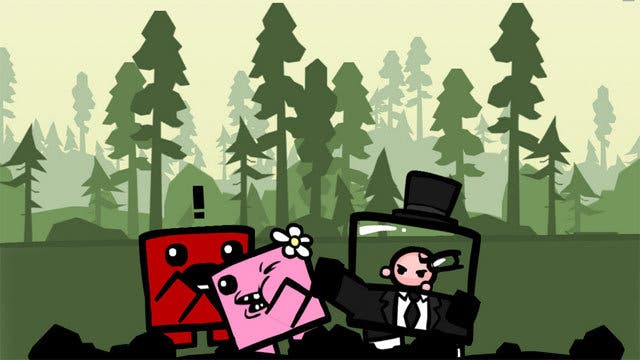No pain, no game
Are hardcore gamers really just masochists?
Hard games are enjoying a revival right now. But while Demon's Souls may be notorious for offering a gruelling RPG experience, the most punitive titles are often to be found within the platform genre. And it's indie developers who seem keenest to add liberal dollops of pain to your gaming pleasure.
Super Meat Boy practically makes it the player's business to die. Then die again. Then stop and think for a minute, only to die harder.
Meanwhile, VVVVVV's levels are littered with shiny trinkets which are nigh-impossible to obtain. To some these present a challenge, a big, obnoxious sign saying "No, you can't" which begs to be knocked down. To others trying to collect them is a futile task, generating only additional frustration which is best avoided.
In fact, some of these games are so difficult that playing them could be considered an exercise in masochism. Or could it? This is an awkward question to ask, since players won't always agree on which games are "hard" and which are "easy".
In other words, discussing difficulty is difficult. The creator of Super Meat Boy, Edmund McMillen, prefers to see Super Meat Boy as a challenge.
"I wouldn't call it masochistic, because masochism usually means punishment," he says.
"I wouldn't say the game is punishing, because it's kind of my goal to make it not as punishing as old games were. There was a lot of penalty in old games which caused frustration and discouragement.
"Those were things I tried to avoid with the design of Super Meat Boy. It doesn't go out of its way to hurt the player, or to get the player to want to hurt himself.

"I think it's more that people want to push their limits. I wouldn't necessarily say push their limits of punishment or torture, but I would definitely say that it gets people to want to push the limits of their own personal skill. And with that comes dying a lot."
When mainstream blockbusters are put through testing and players get stuck, the temptation for the designer is to rip out whatever is interrupting the flow of play. But there must be balance. The problem might not be an inherent flaw in the game. Maybe the tester is still learning.
Developers must then decide why something is hard to achieve. It could be that the mechanic is unrefined. It could be that the objective wasn't clear. It could just be that the tester is rubbish at jumping over pits.
The issue of players getting stuck doesn't seem to bother the indie crowd as much. "Most independent developers do make games pretty difficult, because they want their games to be challenging," says McMillen.
"There's something to be said for a game which can challenge you and make you feel good about it."
In these terms, a game is not masochistic when it presents a challenge accompanied by a reward. The result is a purging process which makes the player feel accomplished when they unlock the coveted "You died an awful lot" achievement.
As with so many similar titles, the sense of satisfaction which comes with completing even one level in Super Meat Boy is payback for hours spent fine-tuning your muscle memory.
But what about those games which are so hard they can't be finished? "I will say this: you can beat Super Meat Boy. You can't beat Canabalt," observes McMillen.
Canabalt, Adam Saltsman's one-button game about leaping from rooftop to rooftop, does in fact have a killscreen built-in. But, Saltsman says, you'd have to run "like, a hundred million miles" to see it.
Surely you'd have to be a masochist to take on that kind of challenge. Setting yourself a gruelling, repetitive and impossible task is definitely masochistic, as is spending so long attempting to complete the task you end up feeling bad.
A masochistic gamer, then, must be someone who is defined by failure. Who cannot win, who knows they cannot win, yet carries on regardless and, most importantly, enjoys failing.








